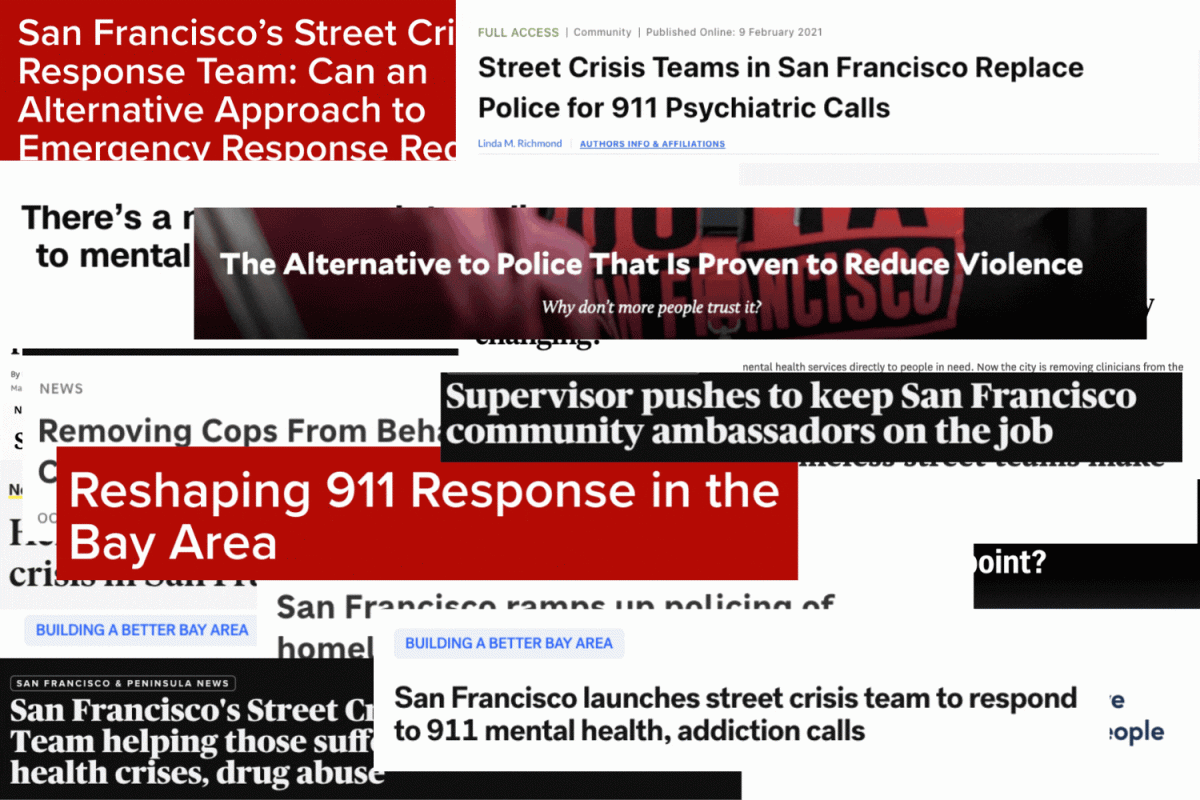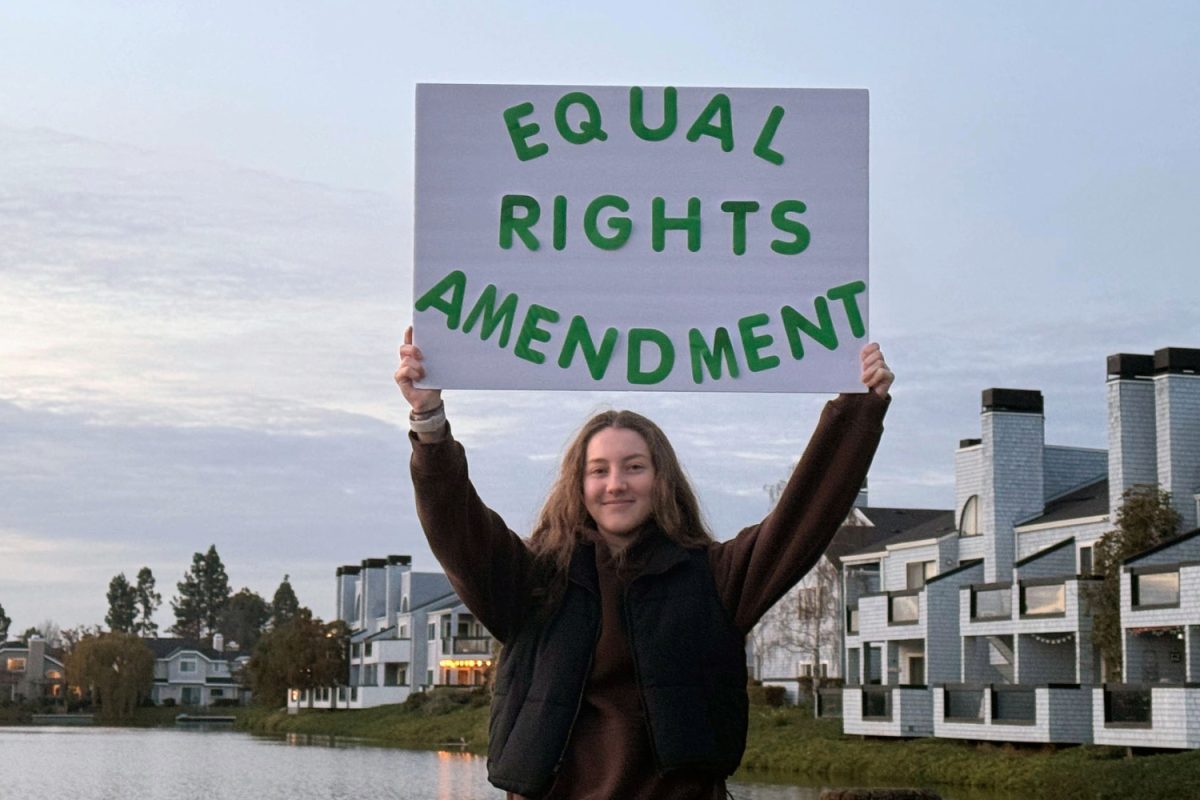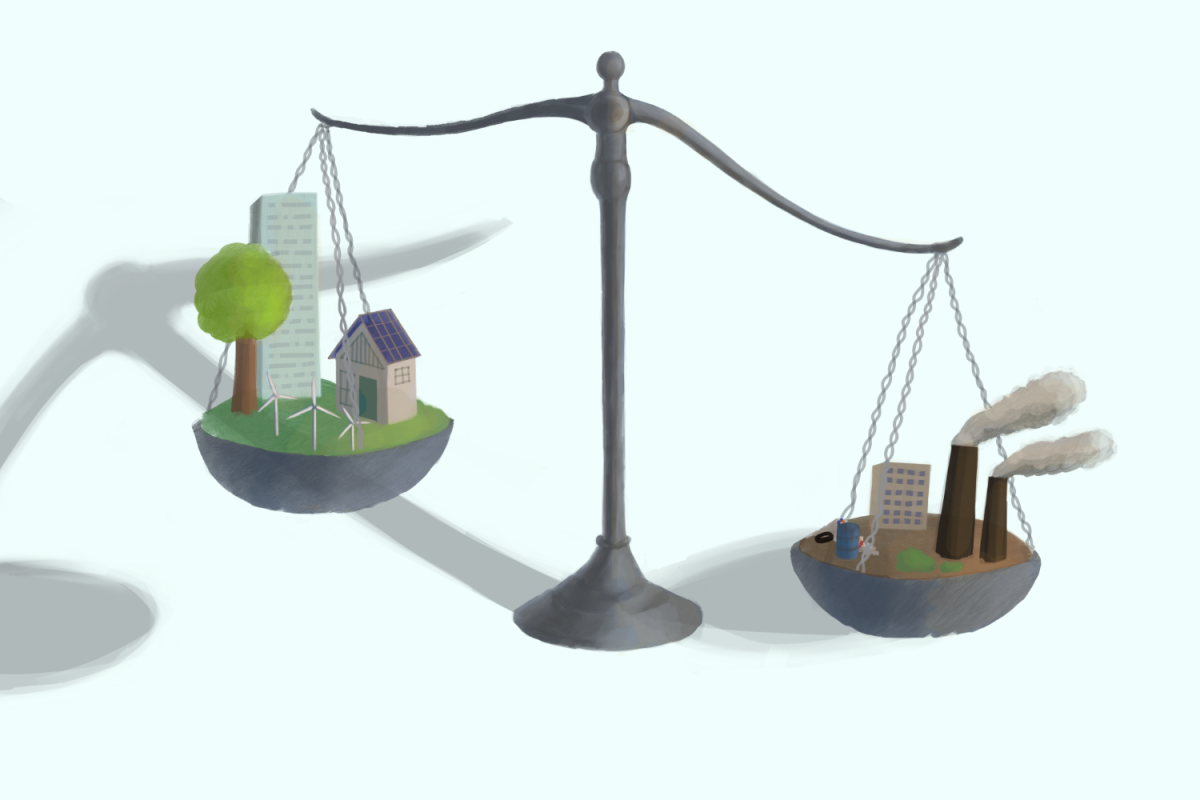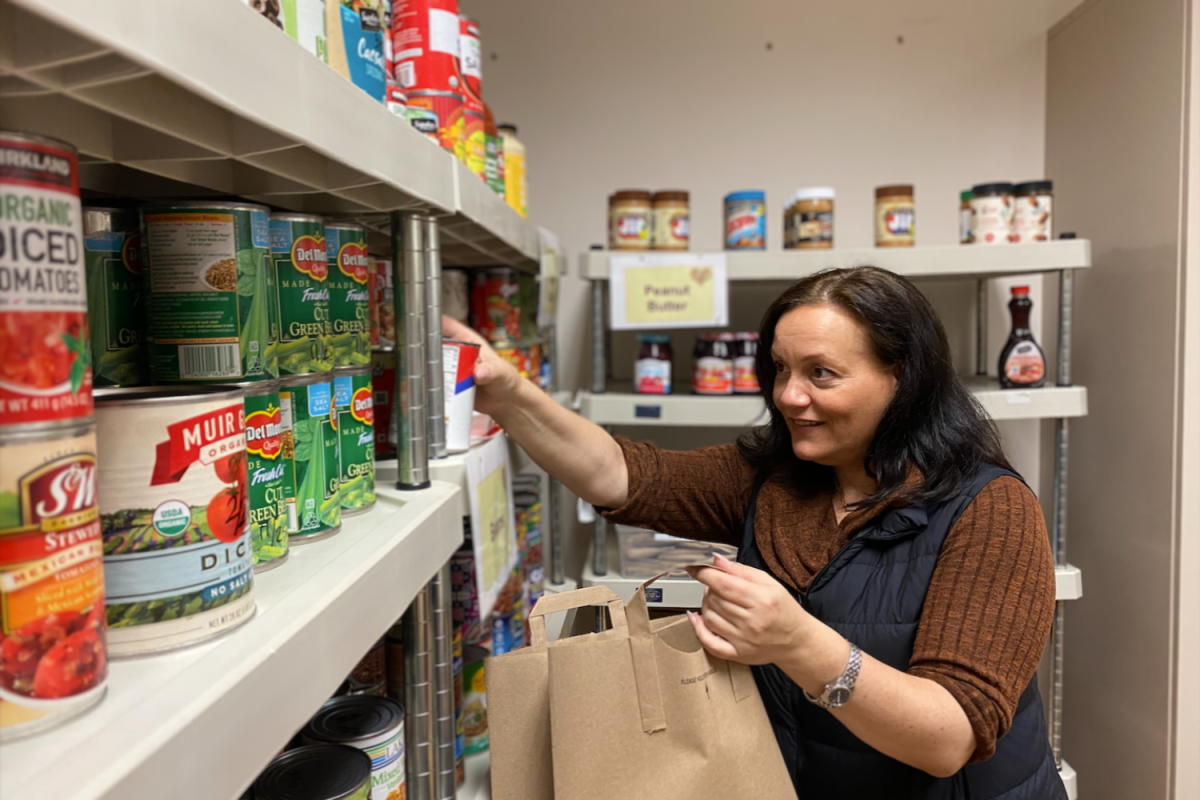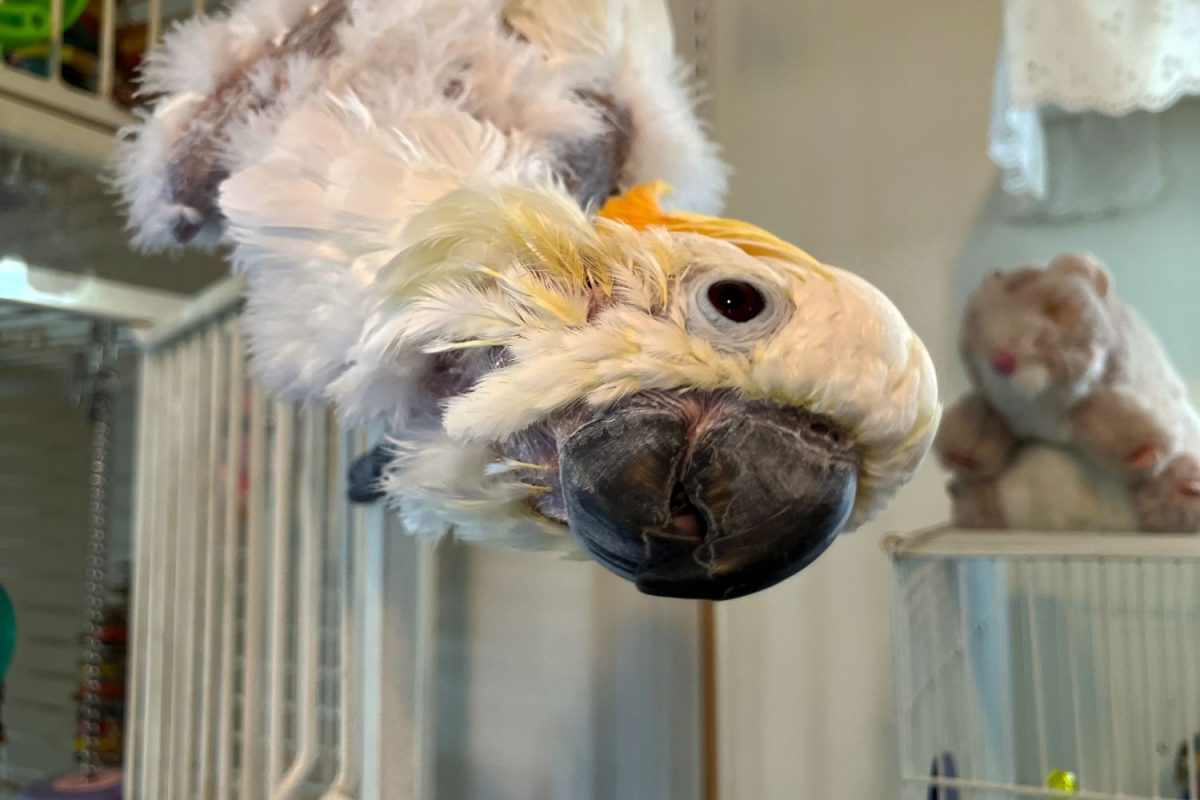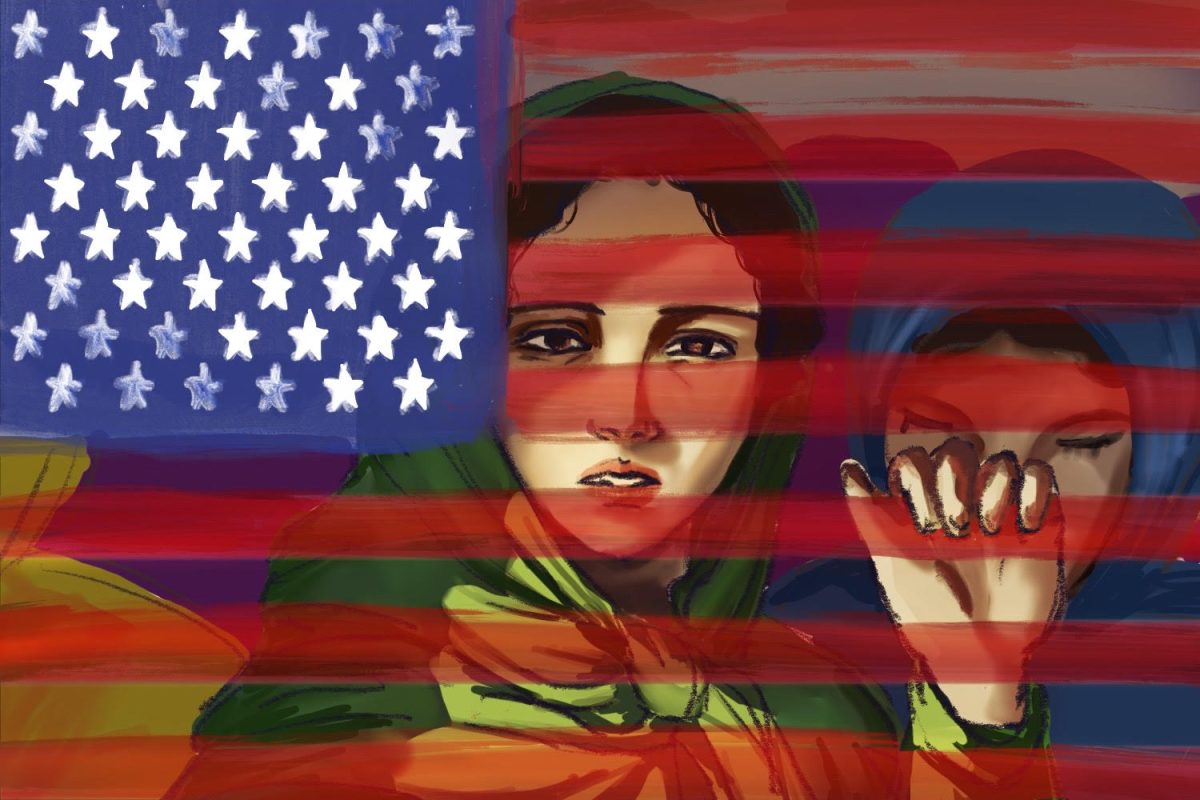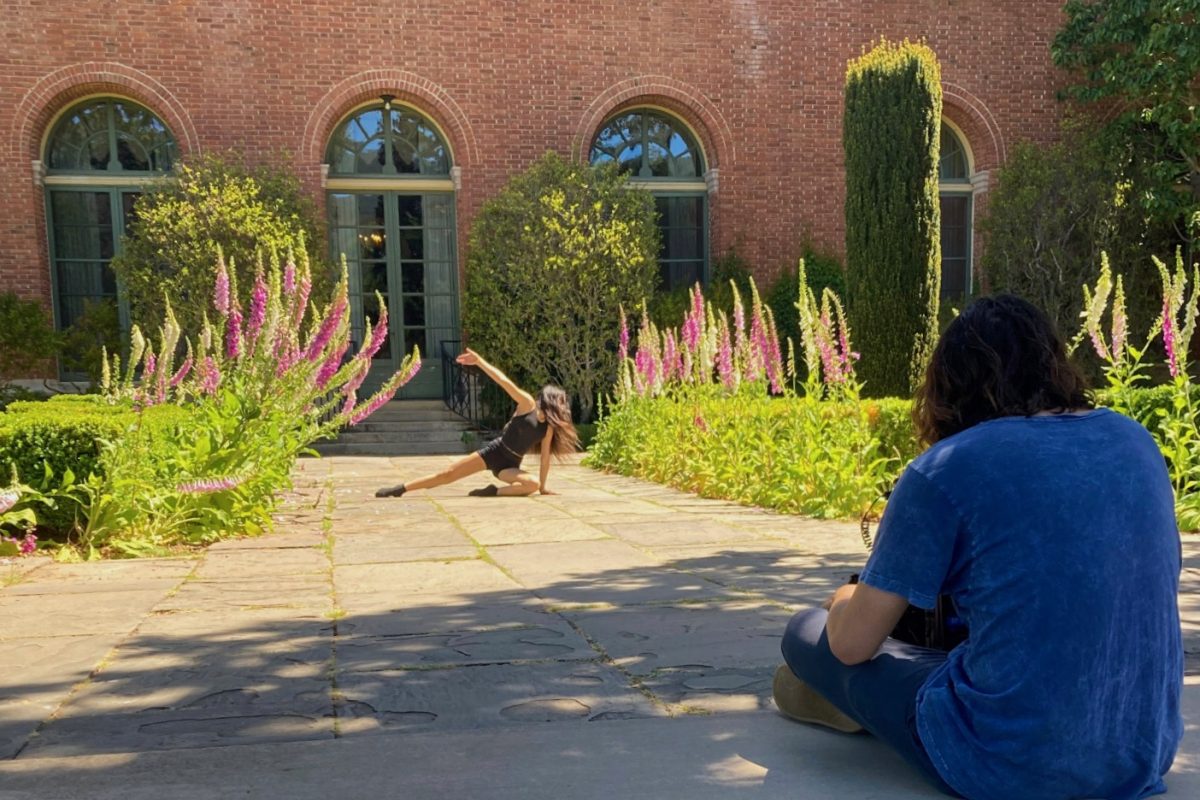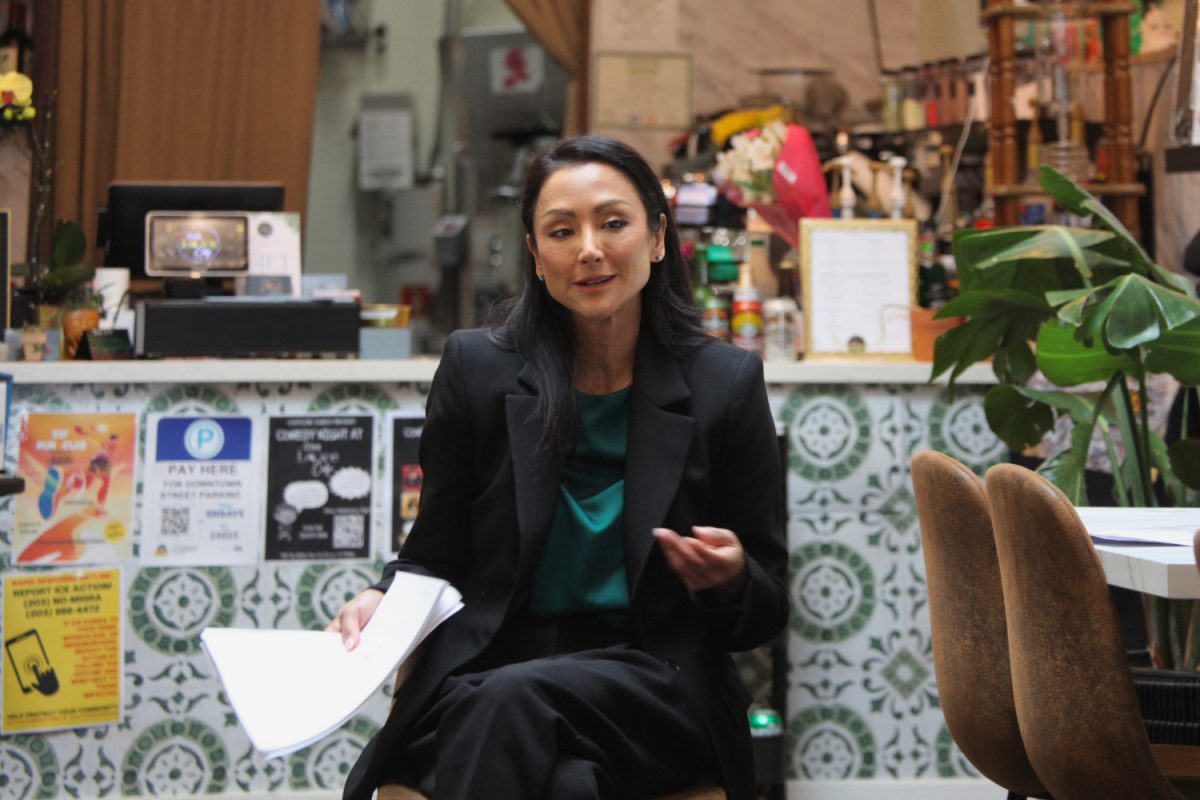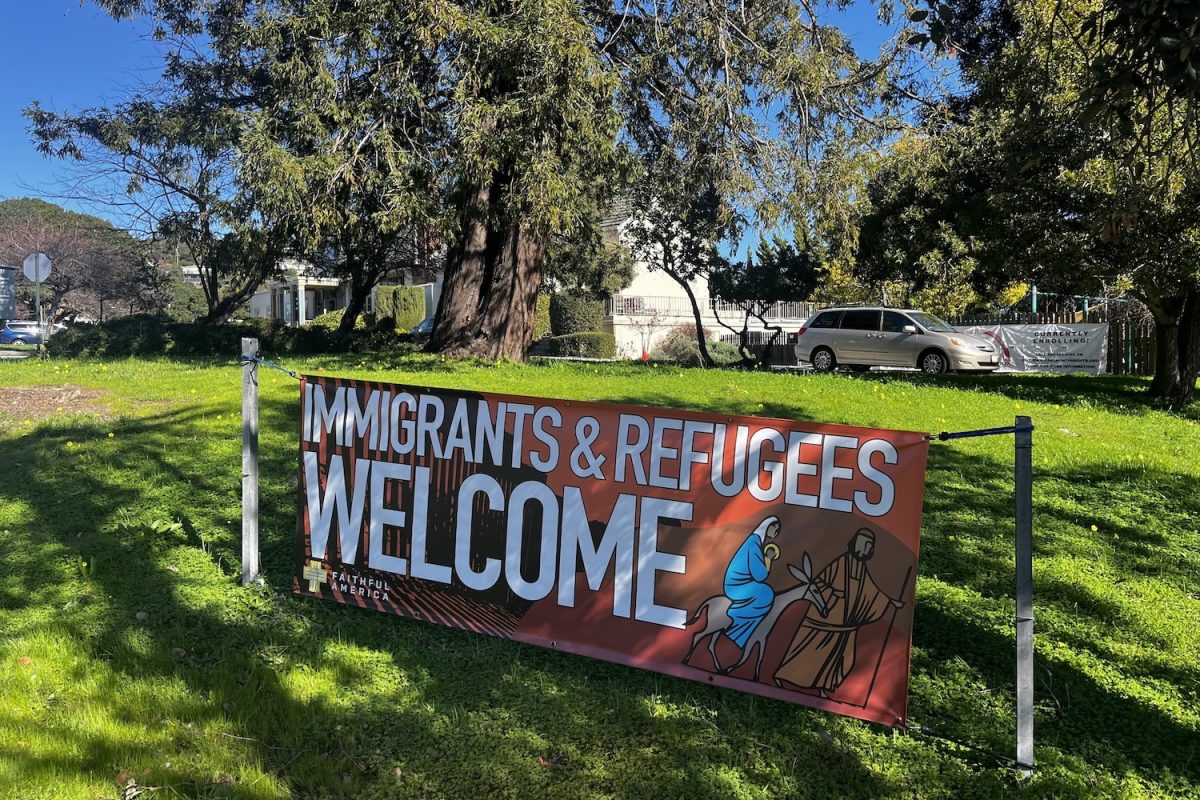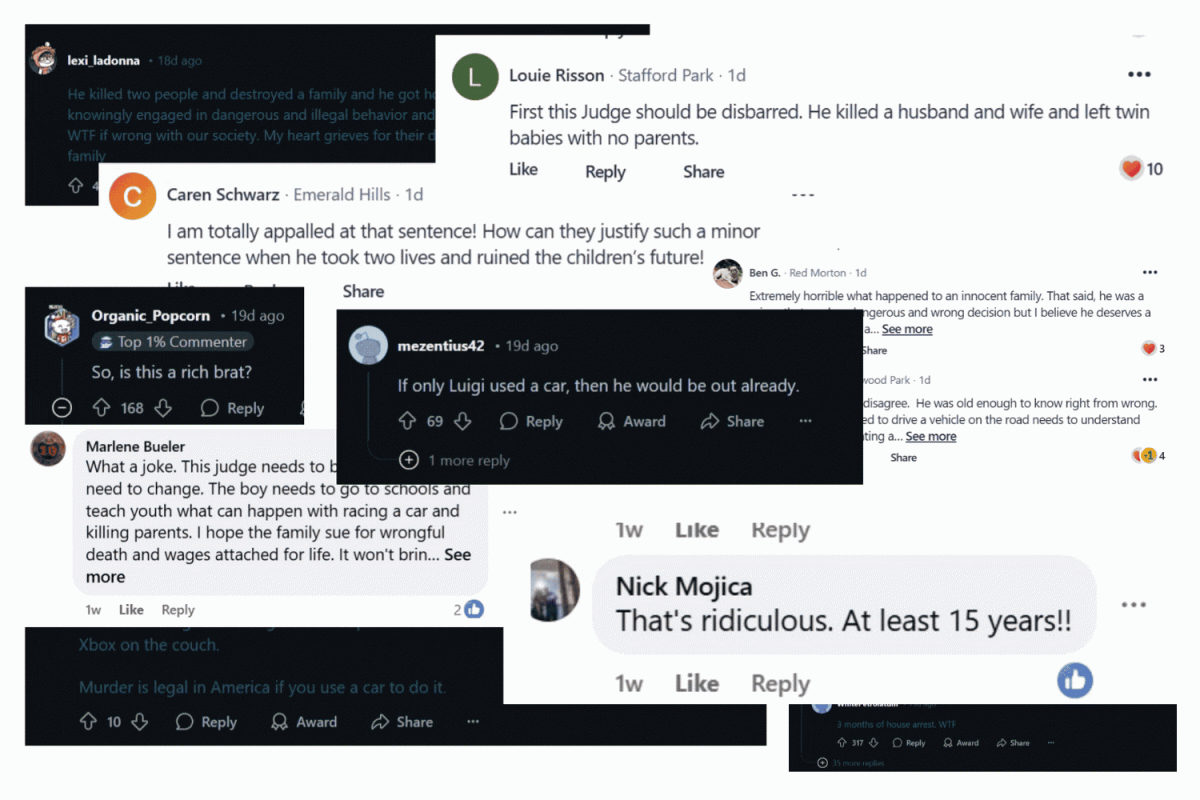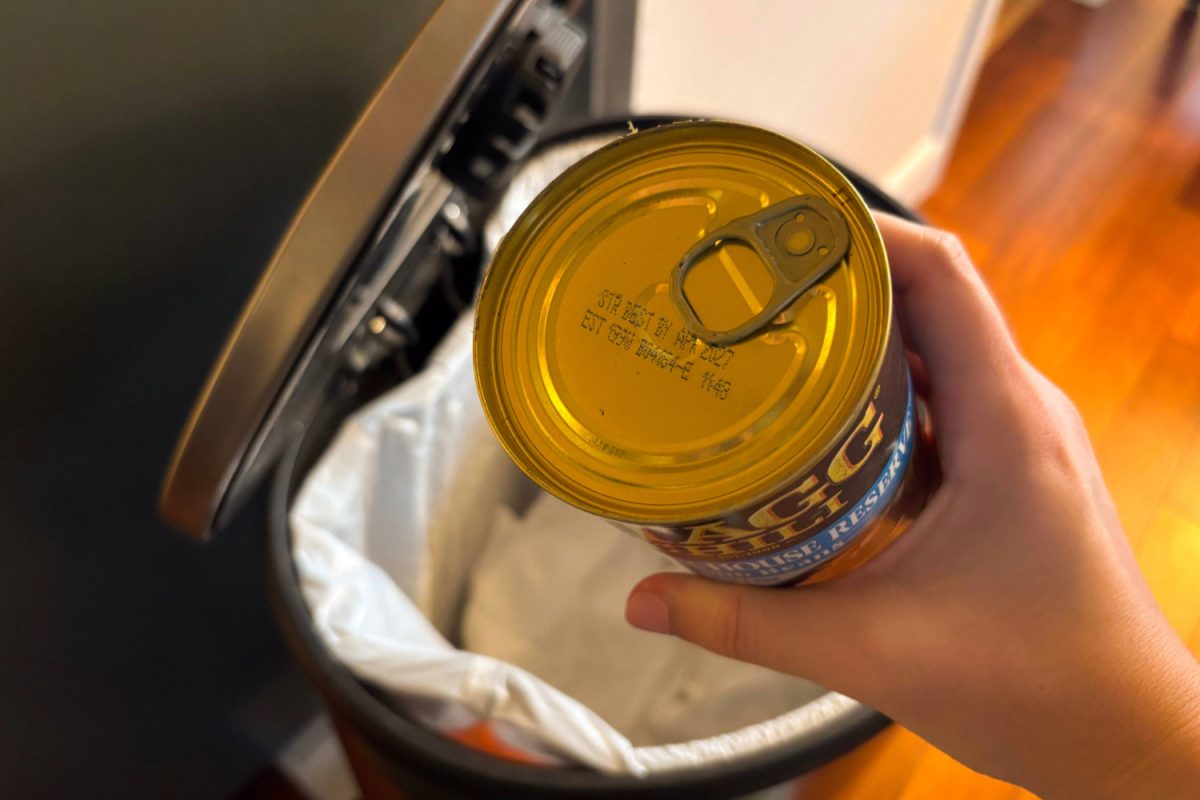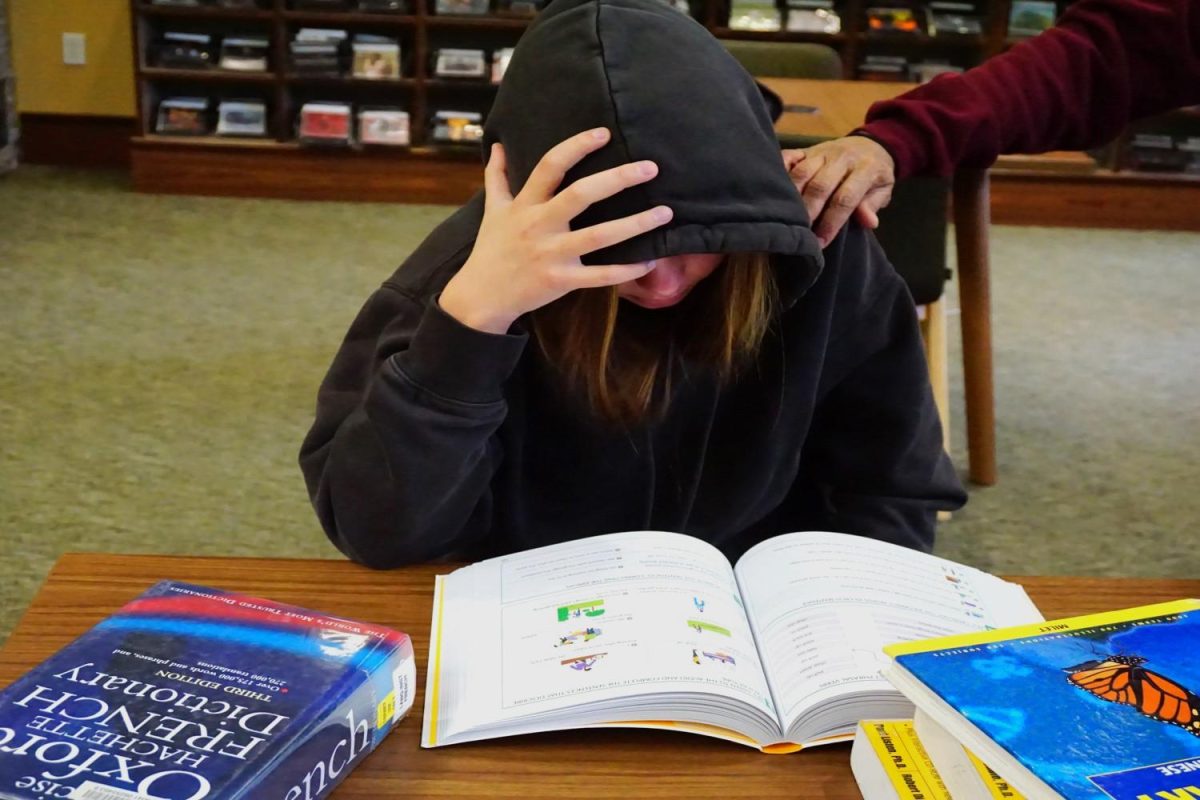She rummaged through her bag, looking for the red envelope her grandmother gave her for Chinese New Year. She wanted to spend the whole $50 on the newest jacket off the Kendall and Kylie line.
“Geez, you are totally whitewashed,” said her friend with a smug look on her face. “You just got $50, and now you’re going to spend it on clothes? Aren’t you supposed to keep it under your pillow for a year for good luck? I swear you’re not even Asian.”
The girl paused. She looked at herself in the mirror and saw a Chinese girl that was covered head to toe in Brandy Melville.
The reflection asked her, “Am I whitewashed?”
What does whitewashed mean?
Whitewashed. That is someone who has forgotten all about their real culture and traditions and instead became “more American.” At least that’s what people think.
According to Public School Reviews, this struggle is experienced by many Carlmont students. Nearly half of the student body comprises people of color, while the other half is white. Students find it challenging to maintain their native traditions and cultures while trying to fit into American society. As a result, being Indian American, Korean American, or African American is often generalized as “whitewashed.”
Instead, the term describes the challenges one may experience while balancing American life and preserving their home country’s culture.
However, many don’t realize that calling someone whitewashed is disrespectful, especially when they don’t know the full story. It can be demoralizing, as it draws individuals away from their culture as a form of peer pressure.
Still, Deepika Shewaramani, a writer for Ryersonian, believes that there is an appropriate time to use the term. When referring to a Hollywood movie cast or mainstream media representation, for instance, it could be appropriately described as whitewashed.
An example of this is when a white actor is cast into a non-white role. This is traditionally used to bring favoritism of characters catered towards white people and has been practiced in the film industry for years. In a scenario like this, one could describe the cast as whitewashed.
However, like most blanket stereotypes, it can also do harm.
“It’s awful, especially when you likely don’t know everything about them, to insinuate that someone has abandoned his or her culture in order to assimilate with the Western world. And that is what using such a term does,” Shewaramani said.
She says that calling someone whitewashed also patronizes them for not fulfilling ethnic stereotypes. It doesn’t take into account the struggles and experiences a person of color may have encountered.
“It even implies that the life they’re living is something reserved only for those who identify as white,” Shewaramani said.
As a result, many people with different backgrounds feel torn between fitting into American culture and preserving their origins.
How the term came about
According to History.com, during 1880-1920, nearly 20 million people immigrated to the U.S. during the height of American industrialization and urbanization. Many were in search of economic opportunities and, ultimately, a new beginning.
Additionally, Pearson’s “United States History” textbook states that “Americanization” was a belief that assimilating immigrants into American society would make them more loyal citizens.
This program pushed foreigners to learn English and integrate American habits into their lives. They advised immigrants to dress like and take on American foods, replacing their homeland’s customs.
However, many believe that America is the “melting pot,” where American tradition is a blend of cultures from all over the world.
According to Encyclopedia Britannica, “The metaphor of the ‘melting pot’ had been introduced to symbolize the mystical potency of the great democracy, whereby people from every corner of the earth were fused into a harmonious and admirable blend.”
American culture is made up of the varying cultures brought to the U.S. by immigrants, forming civic groups and traditional neighborhoods made of different ethnicities.
Immigrants must learn English and American traditions to fit into society, allowing them to obtain jobs and achieve other economic opportunities.
However, the positive term “Americanization” soon transformed into the modern-day word “whitewashed.”
In “What does whitewashed mean?” by the Daily Bruins Staff, someone who doesn’t speak their native tongue, eat traditional foods, or watch TV shows or movies of their culture, are often considered whitewashed.
“The most likely reason behind this is just to fit in, but people may choose to do this because of general unhappiness with their own culture. Or, in a more emotional perspective, it is a representation of their displeasure with themselves,” the Daily Bruins Staff said.
Therefore, embracing American culture and traditions is becoming necessary to thrive economically and socially in the U.S. However, a negative connotation continues to project onto individuals who had to make adjustments to fit in with the rest of society.
Maintaining Traditions at Carlmont
Carlmont’s student body is made up of widely diverse backgrounds and racial demographics.
As a result, many students continue to maintain their culture and traditions, despite the pressure to fit in. However, this process becomes more difficult as generations go on, and new influences and ideas take their place.
For example, Sanjna Sood, a sophomore, is Indian and speaks Hindu. She continues to practice many of the traditions and cultures that her parents have carried down to her.
“There’s a lot of different kinds of traditional holidays, whether it’s like a national thing or as a religious thing. And we do celebrate them,” Sood said. “Colleges in California do host these events as well, namely Stanford and Berkeley.”
By celebrating these holidays, Sood can get in touch with her family in India and continue to learn more about her culture. However, she is afraid of eventually losing some of these traditions due to living in America.
“I personally actually don’t know the exact date or kind of details of Indian tradition and holidays. So kind of like my biggest concern about living in the states is that I won’t get to keep that up,” Sood said.
Other students like Michael Yi, a junior, feel similarly. Yi is Korean, speaks Korean, and maintains his culture and traditions through food and religion.
“Both my parents are Buddhist, so almost every Sunday, we would go to a Buddhist temple and learn about […] what they’re doing, which was cool,” Yi said.
Food also played a large role in maintaining Yi’s Korean culture and background.
“Tradition is carried through the food that we eat. Everything is Korean food. We rarely do anything else unless my mom doesn’t want to cook. Then we go get something, but usually, she makes rice and kimchi and stuff like that,” Yi said.
By maintaining and indulging in their home country’s food, religion, language, holidays, and family history, both Sood and Yi continue to practice their culture and traditions.
Being too “Different” or overly “White”
Many people with different cultural backgrounds find that they are often trapped between their homeland and American culture.
“I’m Korean American; that is the general term for it. And I feel like because we were born in America, we’re going to know we’re going to do American stuff,” Yi said.
Yi makes the analogy that if he were born in Korea, he wouldn’t celebrate Halloween, but since he was born in America, he does. The communities differentiate in many areas, pushing people to take on new cultures and traditions.
For example, Alice Finklestein, a sophomore, is Russian and speaks Russian as well. She believes that everyone is “whitewashed” to a certain degree due to society’s need to fit in.
“I think it is impossible not to be [whitewashed] because when you live in a country different from where your culture comes from, you automatically adapt to it. You have to familiarize yourself with the country’s way of life and to do this, you need to speak the country’s language and communicate with it,” Finklestein said.
She adds that the other culture will be pushed back in this process, becoming secondary to thrive in America.
However, many reach back to their roots to preserve the traditions and cultures that their ancestors brought down.
Regardless, society creates unwritten rules and stigmas that push many to embrace to thrive in today’s social and economic culture. Therefore, using “whitewashed” to describe someone automatically assumes their identity for them, as information about their background and traditions may not have surfaced.
“It [whitewashed] can be a pretty offensive term – it can make someone feel demoralized and ashamed of themselves when in reality, they should embrace their identities,” Finklestein said.


